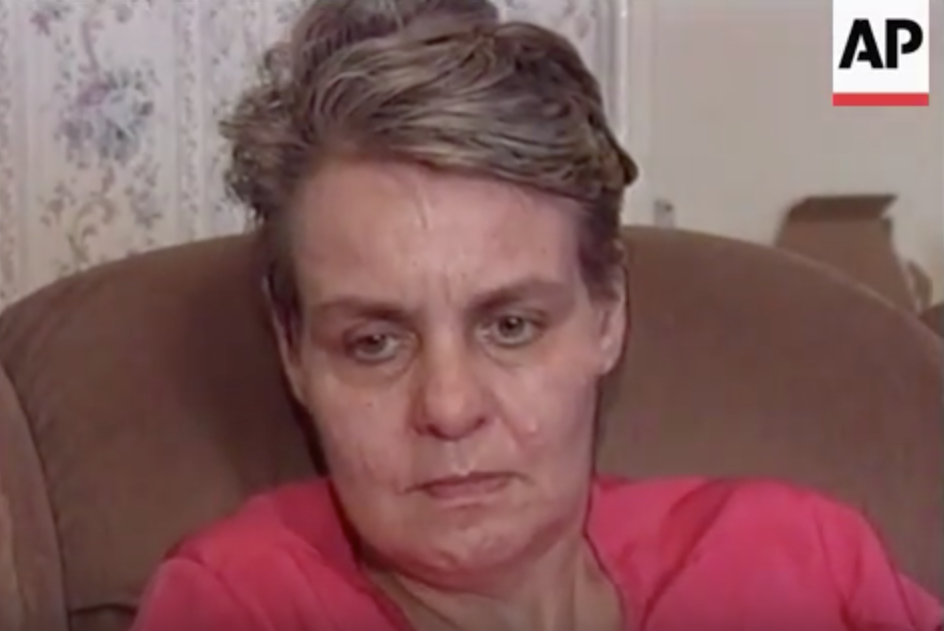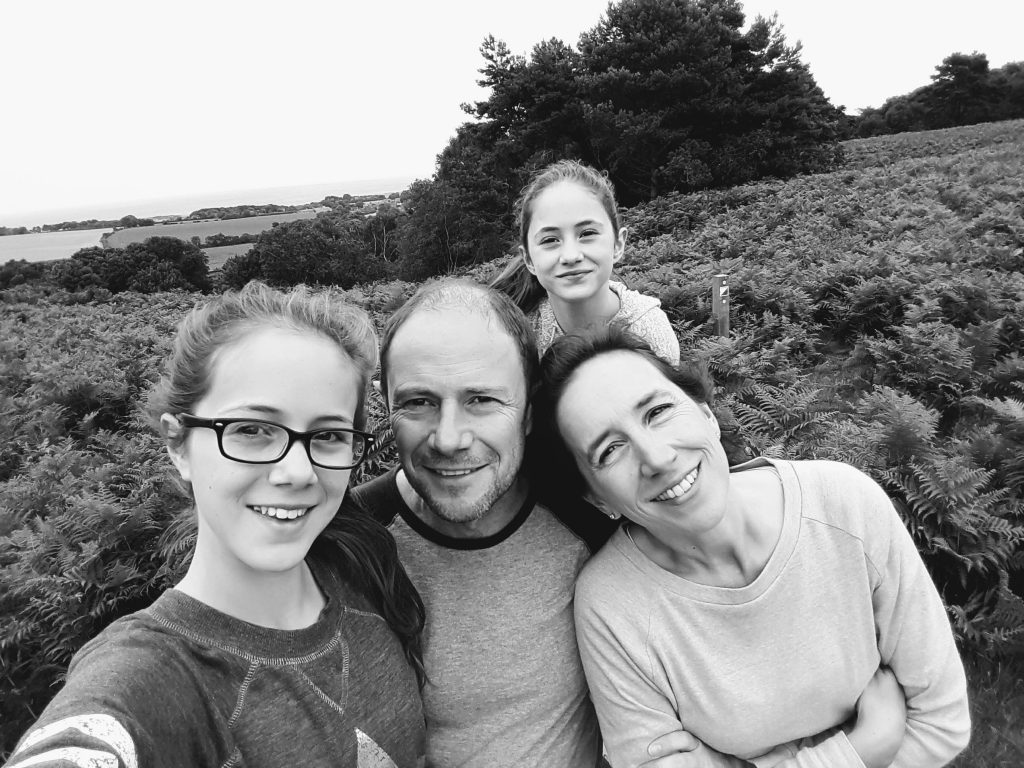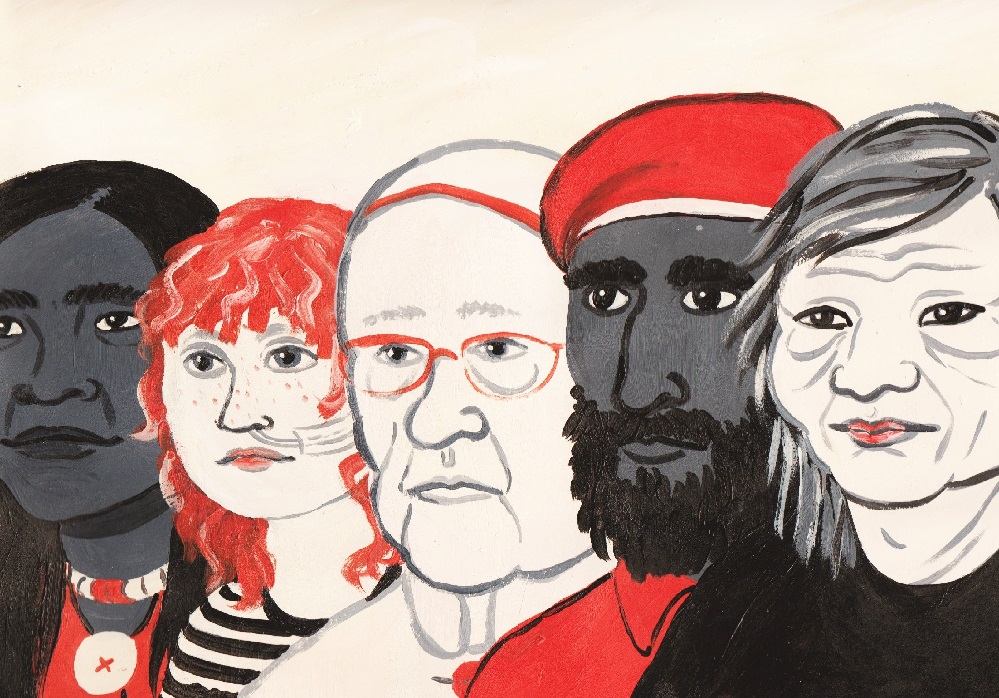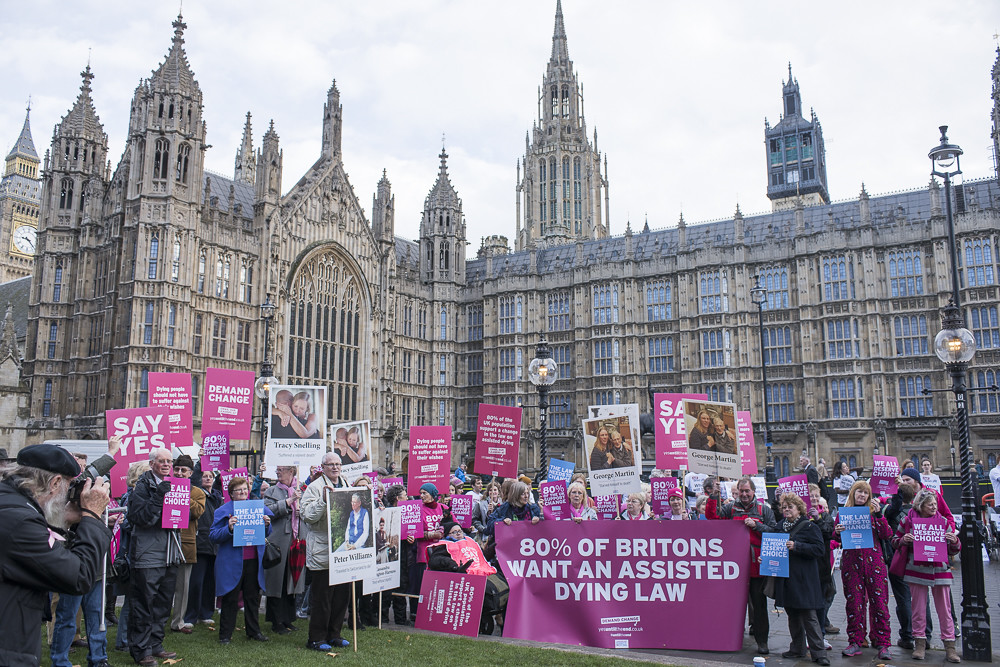The Universal Declaration of Human Rights heartily proclaims that “all human beings are born free and equal in dignity and rights”. More than 70 years on, the concept of ‘dignity’ is still at the centre of human rights. It’s simultaneously an emotive buzzword and an enigmatic legal concept. And it’s right in the middle of the debate on assisted dying.
Death With Dignity?

In 2001, Diane Pretty applied to the High Court to guarantee her husband would not be prosecuted if he helped her to die. She became paralysed after being diagnosed with motor neurone disease two years earlier and wanted to avoid a protracted and painful death. Image Credit: AP / Youtube.
There’s an ongoing story between the courts and those seeking to challenge the existing laws which prohibit assisted dying.
In one of the most famous assisted suicide cases, that of Diane Pretty, the Court of Human Rights affirmed that “the very essence of the [Human Rights] Convention is respect for human dignity and human freedom”.
Synonymous with the ‘right to die’ campaign is the plea for individuals to be able to die with dignity.
But, complicating things slightly, those campaigning against any change in the law argue that relaxing the law to allow for people to assist in the death of others would create a slippery slope which would inevitably degrade human dignity.
As reported by RightsInfo earlier this week (17 July 2019), the debate around assisted dying has been once again brought to the fore – this time by father-of-two Phil Newby.

Phil and Charlotte Newby and their two daughters. Image credit: Phil Newby
Like Ms Pretty, the 48-year-old also has motor neurone disease (MND) – a fatal and incurable illness. He is challenging the current law in the UK which he believes does not allow individuals enough choice in the final stages of their life.
Suicide, he points out, is legal. So is travelling to another country where assisted dying is legal, or allowing the disease to take its course. But someone helping Mr Newby to take his own life in this country – even though it would maximise his personal autonomy to choose the time and the setting of his final moments – would potentially be liable to prosecution for a criminal offence.
I don’t see why, in a country as sophisticated and civilised as our own, which has a world-renowned legal system, a citizen should have to travel to another country to end his or her life.
Phil Newby
What Is Human Dignity?

Image credit: Ellie Collins, RightsInfo
Human dignity is something that we seek to protect through human rights law, but it is also something that we seek to facilitate, by maximising individual autonomy. The absolute prohibition on torture, protected by Article 3 of the Convention on Human Rights, centres on the idea that there is something essential in the individual that should not be defiled – and must be protected.
The right to respect for private life focuses on preventing interference with how individuals choose to go about their lives. This obviously doesn’t apply to all choices, but the thinking is that there is an intrinsic value in allowing human beings to make their own decisions and shape their own lives. Human dignity is all about enabling individuals to make these choices, too.
The right to life is based on the idea that life is something valuable in and of itself – so it’s something that we need to protect. In the case of Diane Pretty, the Human Rights Court rejected the idea that the right to life also contains an opposing right to die.
But without the option to end one’s own life, it becomes an obligation to life – rather than a right to life. And tying an individual to their life, regardless of their own thoughts or desires, doesn’t seem very dignified at all.
The Balancing Act

Image credit: Jurek Durczak, Flickr
The loss of life is always terribly sad, but when an individual chooses it, it can be weighed against the value of allowing them the autonomy to make that decision.
Assisted dying is a more difficult conversation because there is a third party involved. Is the third party helping defile the individual’s dignity, by taking away their life, or are they facilitating their dignity, by helping them enact a choice which they can no longer perform by themselves?
In my view, it is the latter. The restrictions on assisted dying mean that many seriously ill individuals end up tied to a situation where they are not able to exercise choices over the final stages of their life. And facilitating their choices in some of these most important, personal moments would help to facilitate that essential human dignity around which human rights are based.
The debate will go on, however, and we will wait to see what the courts say in Phil Newby’s challenge.
Want to see more on this topic?
- View our video interview: Phil Newby makes the case for assisted dying.
- Read one of our top 50 human rights stories: My Life, My Death My Choice.
- Take a look at our infographic posters setting out your human rights.







